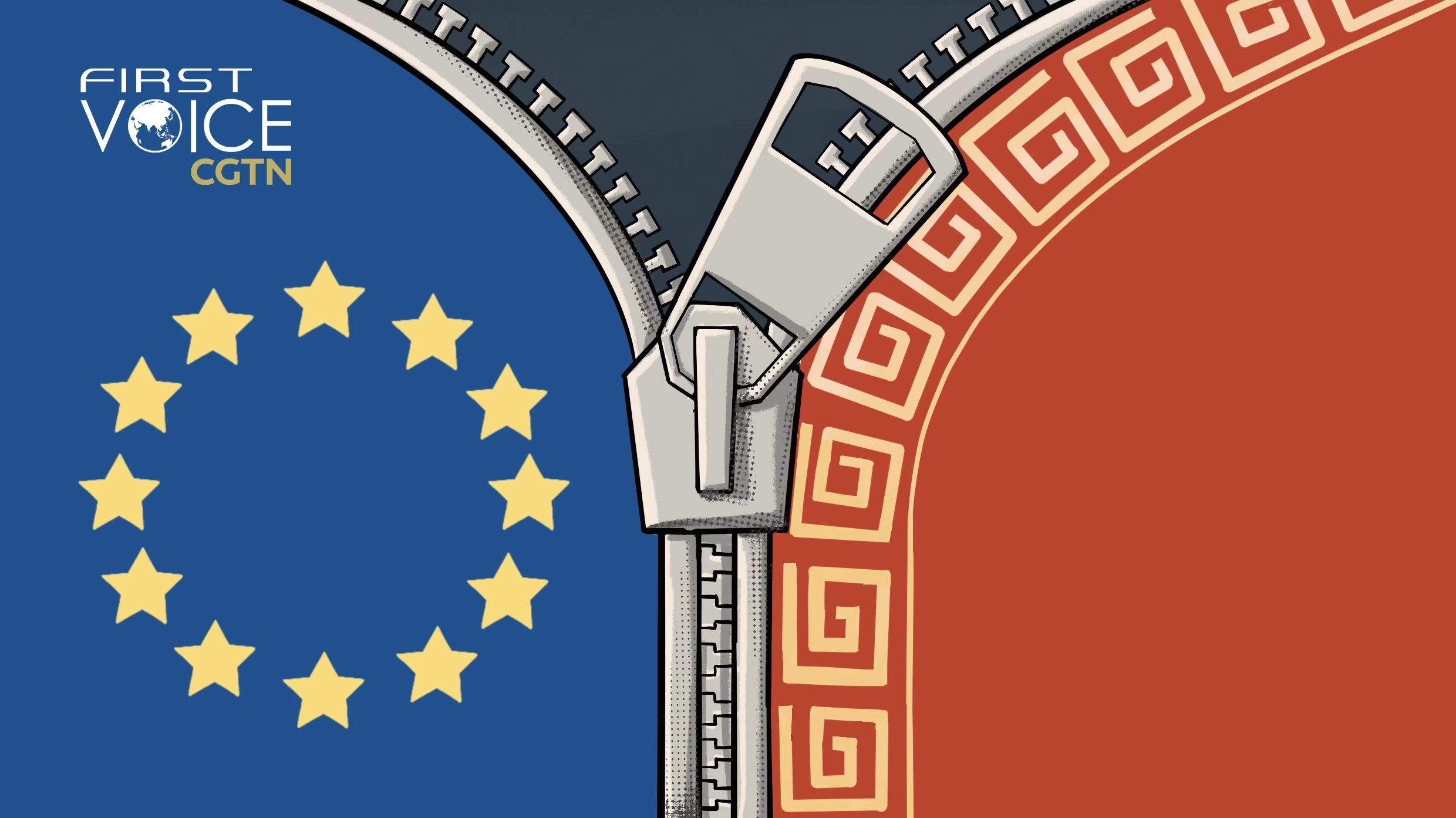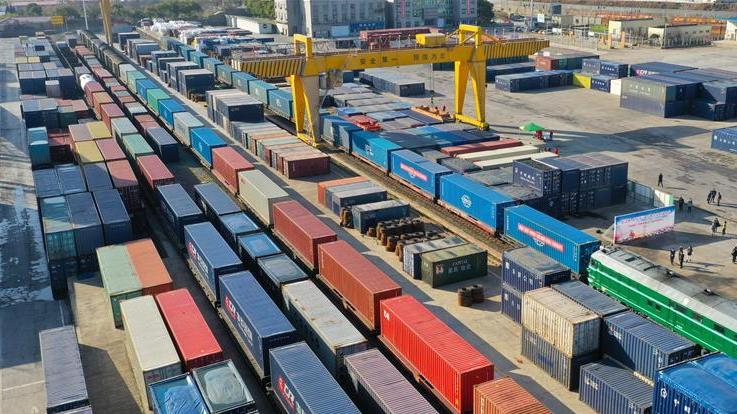
Editor's note: CGTN's First Voice provides instant commentary on breaking stories. The daily column clarifies emerging issues and better defines the news agenda, offering a Chinese perspective on the latest global events.
Before the China-European Union (EU) Summit on April 1, the Economist ran a piece saying that "Russia's invasion of Ukraine, and China's cold-blooded response to it, have exposed the limitations of Europe's old trade-first China policies." It said that EU leaders are hoping to send a message to China saying that the Ukraine conflict is "a defining moment for relations, and for China's image if it refuses to use its influence to end the killing."
Overblown, hyperbolic, caricatured, exaggerated.
On April 1, Chinese President Xi Jinping met President Charles Michel of the European Council and President Ursula von der Leyen of the European Commission via video link. President Xi stated China and the EU share extensive common interests and a solid foundation for cooperation. Only through cooperation and coordination can the two sides resolve problems and rise to challenges, President Xi added.
The Ukraine conflict doesn't have the power to define China-EU relations. There are indeed differences of approaches to the issue on both sides. The EU, given its innate relationship with NATO and close alliance with the United States, has been firmly against Russia's actions in Ukraine and have stepped up their own military presence in Eastern Europe to counter that.
China, on the other hand, has neither the interest in joining the EU against Russia nor helping Russia to evade international sanctions. As President Xi pointed out during the summit, China and the EU, two major forces, big markets and great civilizations, should play a constructive role in adding stabilizing factors to a turbulent world.

The China-Europe freight train waiting for departure at Xiangtang railway port in Nanchang, east China's Jiangxi Province, February 17, 2020. /Xinhua
The China-Europe freight train waiting for departure at Xiangtang railway port in Nanchang, east China's Jiangxi Province, February 17, 2020. /Xinhua
Differences between China and the EU could be characterized as vast. But, intense disagreements and even occasional confrontation have been a part of the China-EU relations. There are many areas where China and the EU don't see eye-to-eye. On the matter of Taiwan, for example, EU member Lithuania has been crossing the lines which led to China downgrading ties with the country. When it comes to sovereignty issues concerning the Xinjiang Uygur Autonomous Region or the Hong Kong Special Administrative Region, the EU has been following the United States' propaganda and interfering in China's domestic politics.
No single relationship is smooth sailing. It's childish and dangerous to define relationship in just one or two aspects or saying that it's either working perfectly well or it's collapsing. Even through all the differences, China and EU have one of the strongest economic ties. China is the EU's largest trading partner while the EU is the second largest of China's. Since fully establishing a relationship in 1983, the economic relationship between the two has boomed. At the end of the 20th century, the trade volume between China and the EU stood at $55.68 billion. But by the end of 2021, China's import and export volume with the EU reached $828.11 billion, achieving a 27.5-percent increase from the previous year, according to data from China's General Administration of Customs.
And also, the two parties find each other to be reliable partners when it comes to climate change. Since the election of former U.S. President Donald Trump in 2016, China and the EU have worked together to become the most vital supporters of the Paris Agreement. After Trump pulled the U.S. out of the agreement, China and the EU held firm in making the multilateral agreement work and became the two most important markets for green bonds and green financing. When U.S. President Joe Biden took America back into the agreement, he's looking at an institution that no longer sees the U.S. as in the driving seat, but relying on China and the EU to carry the weight.
The China-EU relationship isn't one dimensional. Danger arises when people intend to use one issue to define it. As President Xi expressed, the EU should form its own perception of China and adopt independent China policy. Whether it is issues on China's sovereignty or international conflict like in Ukraine, the EU should be cautious to follow quickly in the United States' footsteps or adopt its narrative and world view. After all, the world isn't hegemonic anymore. All of us are allowed to have our own opinions and differences respected.
China and the EU have a relationship that is both raucous and can produce positive results. Perhaps it is time for people to get over the outdated idea of total alignment and start to realize that relationship between two powers is multi-layered and multi-faceted. Seeing the complexity of the relationship would be the lubricant that helps to sustain a healthy development, thereby adding more peace and stability to the world.
(If you want to contribute and have specific expertise, please contact us at opinions@cgtn.com. Follow @thouse_opinions on Twitter to discover the latest commentaries in the CGTN Opinion Section.)

